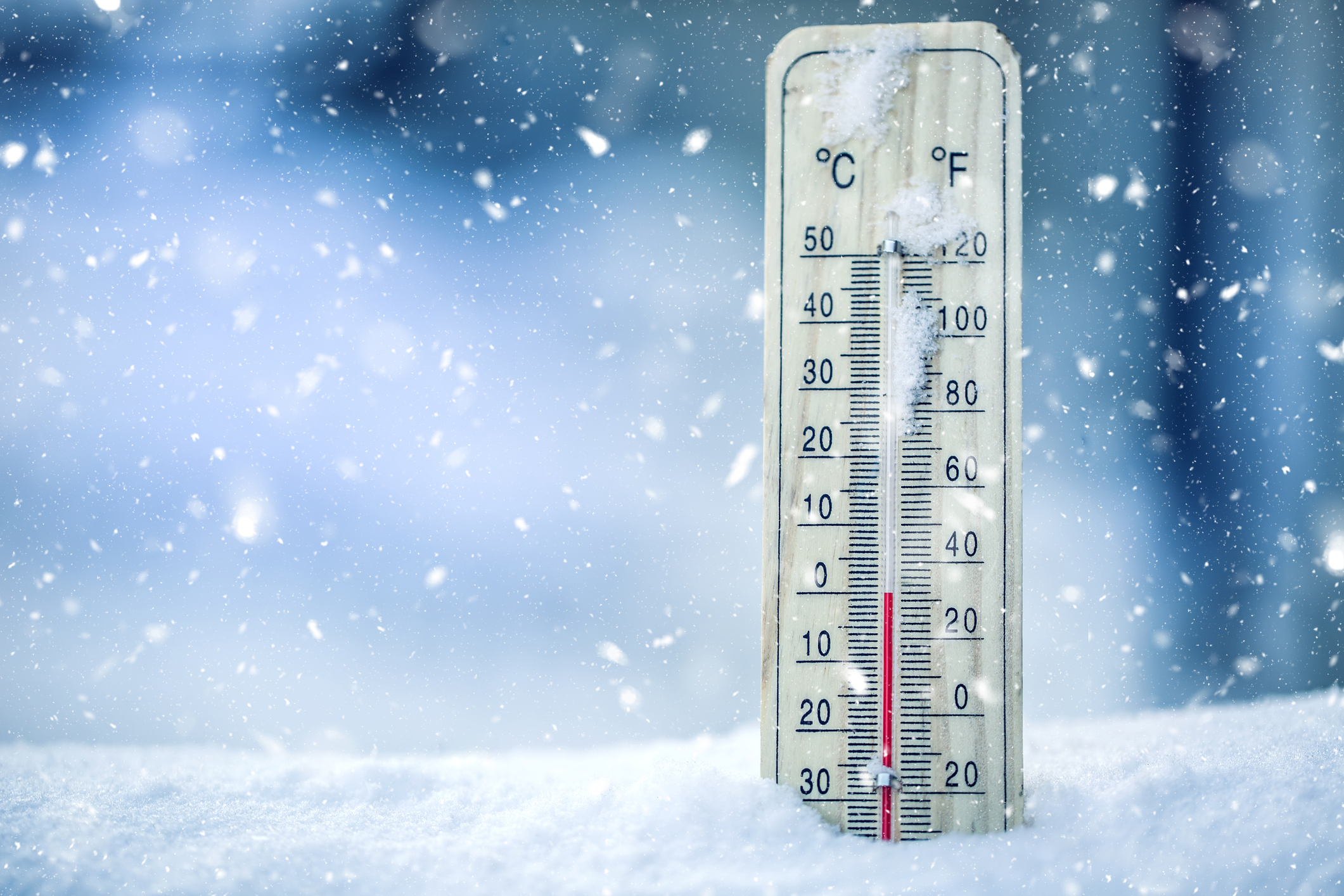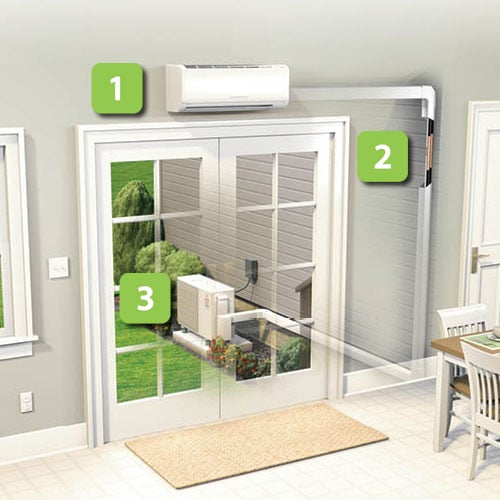Ductless mini-split heat pump systems have been taking the HVAC world by storm due to their versatility and energy efficiency. Plus, they can function as all-in-one systems for both heating and cooling your home. But if you're looking to install a new HVAC system in your home -- a big investment -- you might have some reservations. We're here to bust the seven biggest myths when it comes to ductless heat pumps, so that you can learn more and have peace of mind before installing one of these systems in your home.
If you aren't too familiar with ductless heat pumps, you should check out our in-depth guide first by clicking the button below. To put it simply, these systems work by sending refrigerant between your home and the outside through small line sets in the walls. A heat pump uses thermal energy to move heat inside in the winter, and then reverses its function remove heat from your home and provide cool air in the summer. The indoor units may be referred to as mini-splits, heads, or air handlers.
Busting Seven Myths About Ductless Heat Pumps
Now that you know a little more about ductless heat pumps and how they work, you can read about the most common misconceptions and what the truth behind each one is.
They are more expensive than oil or gas heaters❌
Ductless heat pump systems typically have a higher upfront cost than that of traditional HVAC systems. However, the fact that heat pumps are the most energy-efficient type of system means that you will end up saving more in energy bills each months. According to Mitsubishi's website, "the use of electric heat pumps will actually save you between $1,000 and $2,000 annually in energy costs." You can read more about heat pump efficiency here.
The cost savings associated with ductless splits is dependent upon several factors, like the condition and location of the original equipment and the climatic region you're in.
If you compare the installation cost in a situation where you'd have to expand and install an entire new ductwork system in an older home or install multiple mini-splits, the heat pump route would likely be more cost-efficient.
They are only suitable for new construction and additions❌
Because ductless units offer such a flexible installation process, they are great for homes/additions where there's no ductwork or where extending the current HVAC system wouldn't work well. But that doesn't mean they're only good for these applications. Mitsubishi ductless units are a great fit for any application -- older and historic homes, remodels, commercial buildings, rowhomes and tiny homes, boiler-heated homes -- you name it! Click the button below to read about more than 13 different applications for these systems.
They don't work in colder temperatures❌

While most standard heat pumps stop working when it's about 25° F outside, Mitsubishi Hyper-Heat systems offer comfortable heating in sub-zero temperatures! Heat pumps lose efficiency at about 40° F, while Hyper-Heat models use H2i® technology to provide up to 100 percent of heating capacity at 5° F, and perform until it gets as low as -13° F. Because of this, they can supplement your existing system or function as your one, all-electric heating source.
Since heat pumps maximize the amount of heat generated from energy consumed, they cost less to operate than oil or gas-operated systems. So not only is a ductless heat pump able to provide you with year-round heating and cooling, but it is one of the most efficient and cost-effective HVAC systems available.
They don't have a long lifespan❌
As long as you properly maintain and service your ductless heat pump system, it will have a lifespan very similar to that of traditional heating and cooling systems. Dirty components, lack of preventative care, and thermostat complications are some of the main causes of heat pump issues, so it's important to schedule routine maintenance just as you would your car or any other HVAC system. No system will last long if you don't take care of it, so stay on top of daily and annual care.
They require more maintenance❌
A ductless heat pump system needs annual preventative maintenance and regular filter changes just like any other heating or cooling system. Ductless systems typically need two tune-ups a year -- one in the winter and one in the summer -- to clean the system and check for any issues. Since heat pumps work to both heat and cool your home, this is equivalent to needing one tune-up for your heater and one for your air conditioner each year.
Additionally, unlike traditional systems, the indoor and outdoor components of a ductless AC are easily accessible. Systems with ductwork may be harder to clean or more difficult to access, as some indoor units are placed in attics or crawlspaces.
Indoor units are ugly/unappealing❌
While the air handlers of a ductless heat pump system are more noticeable than conventional vents, there are many options and customizations to make sure you have the best suited ones for your home. Contrary to what many may think, indoor units are not only wall-mounted (left) -- there are also floor-mounted units (middle) and ceiling cassettes (right).  Units can also be painted to match your walls or placed in inconspicuous locations to be more hidden. And, if you go with a multi-zone system, not every unit has to be the same! Each zone will have an air handler that works best for that specific area.
Units can also be painted to match your walls or placed in inconspicuous locations to be more hidden. And, if you go with a multi-zone system, not every unit has to be the same! Each zone will have an air handler that works best for that specific area.
 Units can also be painted to match your walls or placed in inconspicuous locations to be more hidden. And, if you go with a multi-zone system, not every unit has to be the same! Each zone will have an air handler that works best for that specific area.
Units can also be painted to match your walls or placed in inconspicuous locations to be more hidden. And, if you go with a multi-zone system, not every unit has to be the same! Each zone will have an air handler that works best for that specific area. They attract and spread more bacteria❌
Mitsubishi heat pump systems are equipped with advanced, multi-stage filtration systems to help remove airborne particles and contaminants such as allergens, viruses, and bacteria from the air as they circulate within a room. They do a great job of keeping the air quality in your home at healthy levels while keeping you comfortable all year long.
If you're still unsure if a ductless heat pump is right for your home, the best option is to schedule a consultation with a professional contractor! You can get more details and find out how a ductless system would work for your heating and cooling needs.
If you live in the Delaware Valley/Greater Philadelphia area and would like to find comfort within your home, visit our website or give us a call at 215 - 245 - 3200 to learn more.









